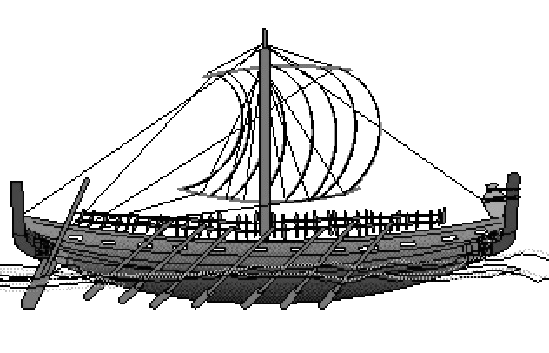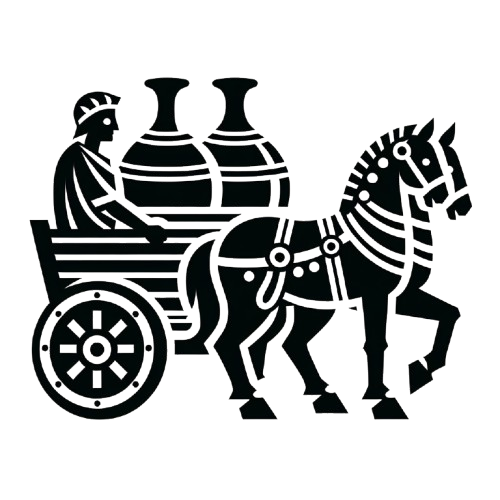One day, 2.500 years ago…
…cultivated olive trees were growing in Alpiarça, just 15 km in a straight line from Vale do Pais Farm, according to palynological (pollen) investigations. Abundant remains of Phoenician pottery have been found in the River Tagus valley, close to Móron (now called Santarém). The Phoenicians traded extensively with that city and with Olisipon (Lisbon). They likely brought olive trees to the region.

Three hundred years later, the Romans arrived here in the Tagus valley in Portugal, at that time called Lusitania. Lusitanian generals like Punicus and Caesarus defeated and were defeated by the Romans. After 55 years of wars (194BC-139BC) against the Lusitanians and their mobile guerilla cavalry units, the powerful Roman Senate finally gave up and proposed peace to the Lusitanian general and noble Viriathus. But not before Viriathus had destroyed another Roman legion and captured their symbols, a deshonor punished by death by decimation imposed to the surviving defeated legion soldiers according to Roman law.

Viriathus, the Lusitanian noble who won over the Roman Empire, holding his machaera sword.

On the losing side, a Roman Centurion.
Viriathus took the captured Roman legion symbols in derisory parades along the Lusitanian towns, wrote Greek-Roman historian Apianus Alexandrinus (95AD-165AD). This was a triumphant achievement for the small yet fierce Lusitanian clans, the ancestors of the Portuguese people.
“And yet the country north of the Tagus, Lusitania, is the greatest of the nations in Hispania, and is the nation against which the Romans waged war for the longest times.”
— Greek geographer Strabo (64BC-24AD)
Portugal may be small, but its reputation has been stellar for over 2,300 years. Our cuisine is rich and flavorful, and our wines come from ancient grape varieties. You can savor these delights not far from Vale do Pais’ olive groves in numerous restaurants, offering hearty countryside meals or refined dishes.
Returning to Viriathus, once peace was established, the Roman Senate secretly conspired to eliminate him. Without Viriathus, and under Roman rule in major towns like Olisipon (Lisbon), the Lusitanians resumed their daily lives and businesses. However, the Romans never fully occupied every Lusitanian village in the rugged countryside. They are welcome here, and we can be friends, as long as they never again attempt to convince us into signing another peace treaty. ; )
Sempronianus the olive oil decanter and trader from Lusitania.

Quality olive oil was and is a valuable product. An inscription from 1AD-150AD found in Algeciras mentions Marcus Cassius Sempronianus from Olisipon and his wife Zoe Cassia. He was an olive oil decanter and trader.*
We nicknamed him Semp and he is now our Chief Customer Service AI Officer (CSAO), available in the chat down at the right corner of our website. He will help you with product information, promotions, coupons, shipment and how to purchase our Extra-Virgin Olive Oils and taste them.
You may also ask Semp about his life and family from 1.900 years ago. If he somehow has not the information you need, please ask him “I want to contact a human customer support” and he will help you to get in touch with us.
*A propos de Marcus Cassius Sempronianus Olisiponensis, Diffusor Olearius, Marie-France Loyzance, 1986.


